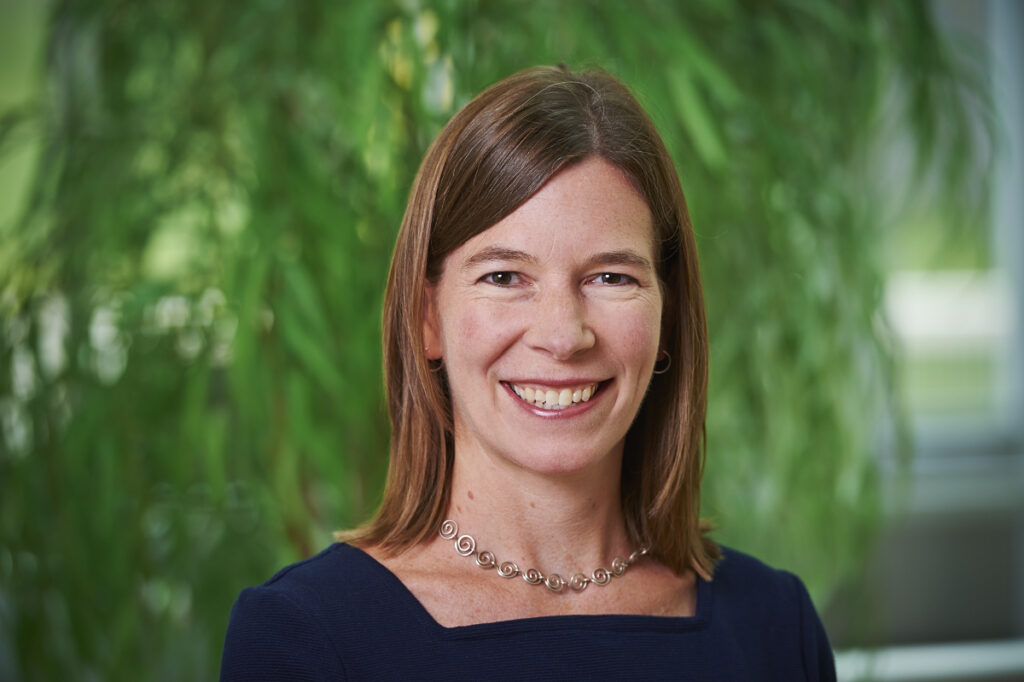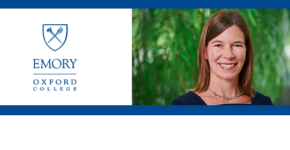 On Oxford College of Emory University Week: Students will be missing their friends this year.
On Oxford College of Emory University Week: Students will be missing their friends this year.
Catherine Bagwell, professor of psychology, explores why friends are important for young learners.
Dr. Bagwell’s interest in psychology was sparked in her first-year introductory psychology course at the University of Richmond, and her first taste of research came soon after as part of a class in which students worked together on a research project on children’s peer relationships. After graduating from Richmond summa cum laude with a B.S. in psychology in 1994, she attended Duke University’s Ph.D. program in clinical psychology and graduated in 1999. Her research at Duke focused on the peer relationships of aggressive and antisocial children, and her clinical work focused on prevention and intervention efforts for children at risk for Conduct Disorder. Dr. Bagwell completed her clinical internship at Western Psychiatric Institute and Clinic in Pittsburgh and then returned to her alma mater as Assistant Professor of Psychology. At Richmond she embraced the opportunity to work closely with students in a liberal arts environment and to collaborate with faculty invested in undergraduate education. During her time there, Dr. Bagwell was recognized with a number of teaching awards, including the University’s Distinguished Educator Award and the Arts and Sciences Outstanding Mentor Award. She was Assistant Professor, Associate Professor, and MacEldin Trawick Professor of Psychology at Richmond from 1999-2012. In 2012, she moved to Colgate University for four wonderful (and cold) years as Professor of Psychology. In 2016, she joined the Oxford faculty and is eager to work with Oxford students in similar collaborative endeavors as she experienced as an undergraduate student. Dr. Bagwell lives in Oxford with her husband, Douglas Hicks, and their two children.
Remote Learning and School Friendships
Due to the global pandemic, schools have turned to remote learning, and social distancing means children and adolescents have spent little time with their friends for many months. Does this matter? Developmental psychologists would say it does.
Friendship is often viewed as the quintessential relationship of childhood and adolescence because friends spend significant amounts of time together, and friendships affect children’s well-being – in positive and sometimes negative ways.
Friends are not just nice to have; rather, they are developmentally fundamental. Within friendships, children develop and practice critical social skills they need in current and future relationships. They learn how to seek and to provide emotional support to others; they learn how to take another’s perspective and to compromise and negotiate; they experience the thrill of making another person laugh; and they practice intimacy – sharing secrets and deeply caring for another person.
My colleagues and I have found that young adults who had a close friend in childhood show better adjustment, including fewer depressive symptoms, than those who did not. Friendships can serve as a protective function. In another study, my colleagues and I found that having a close friend protects vulnerable children – in this case children with depressive symptoms – from increasing peer victimization across a school year.
The pandemic highlights the value children and adolescents themselves place on their friendships. Adolescents, especially, are desperate to be back with their friends. Research supports this desire so they can continue doing the developmental work that friendships help them to do. Especially if the pandemic continues, we may need to explore Covid’s limiting effects on friendships for years to come.

Comments
2 responses to “Catherine Bagwell, Emory University – Remote Learning and School Friendships”